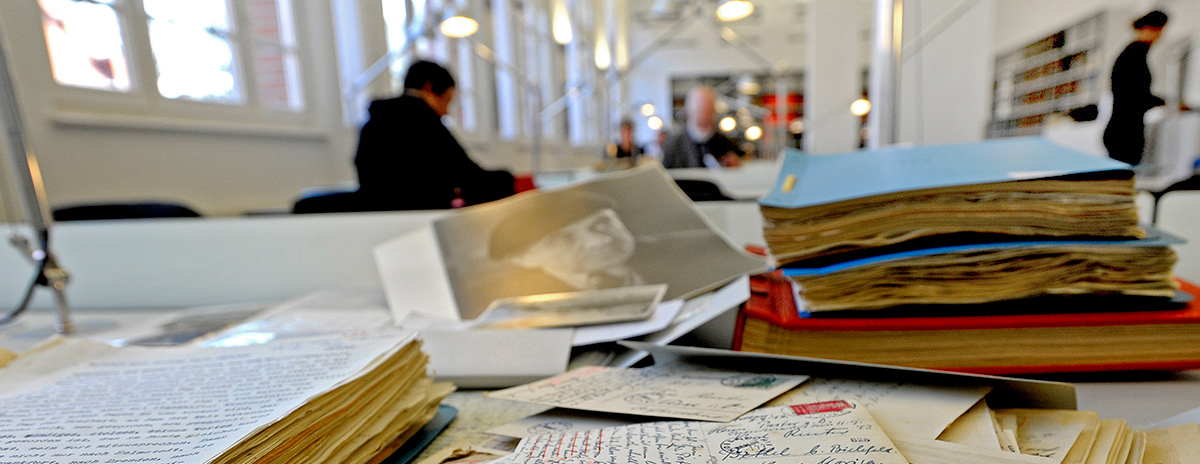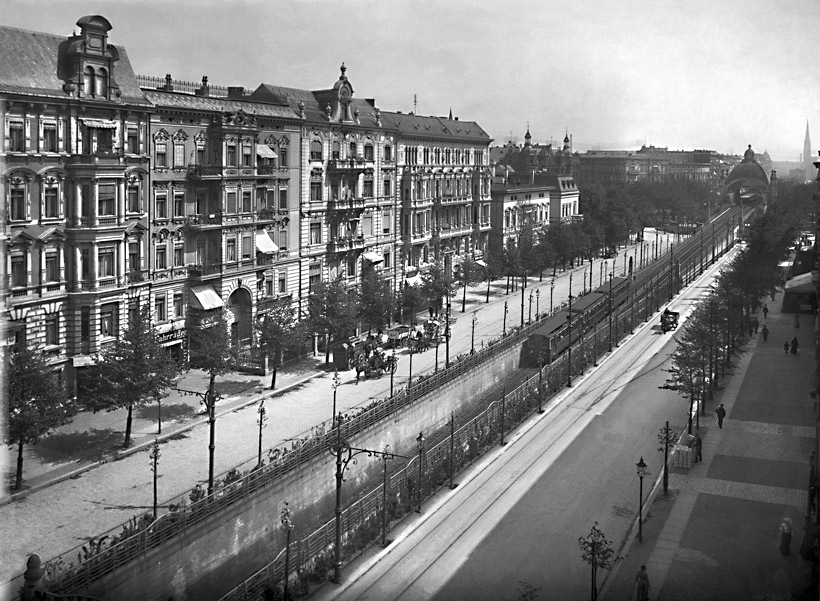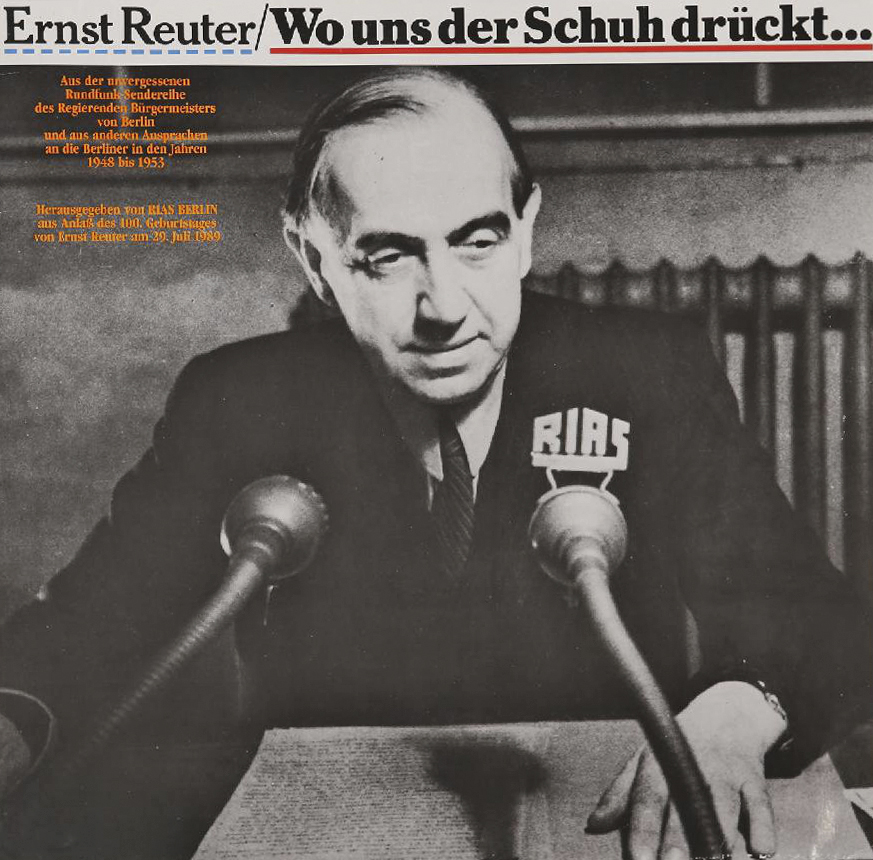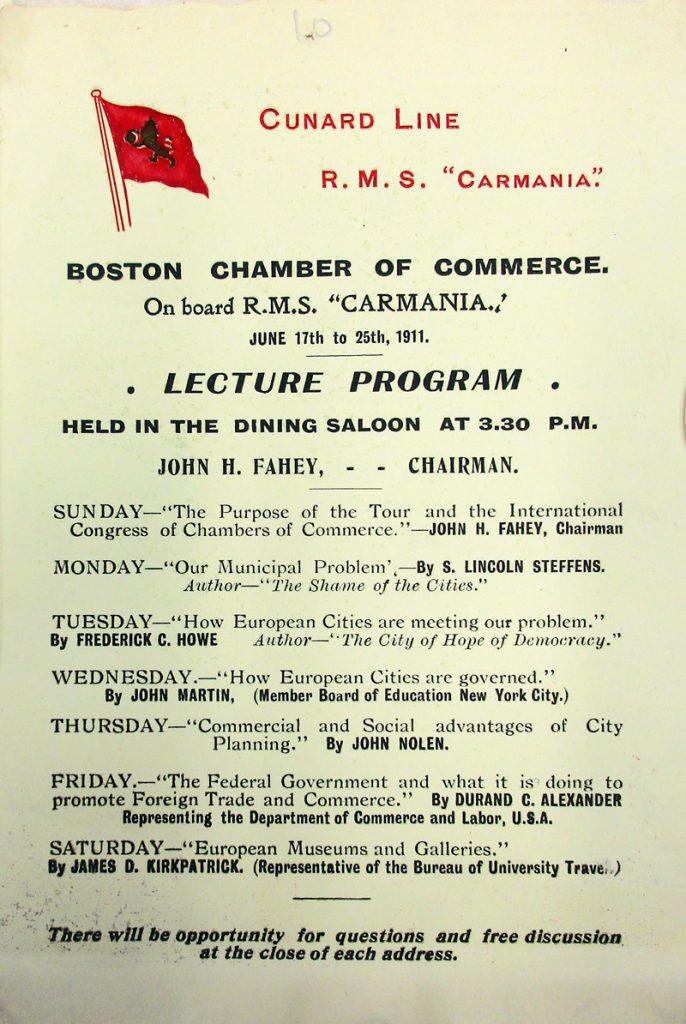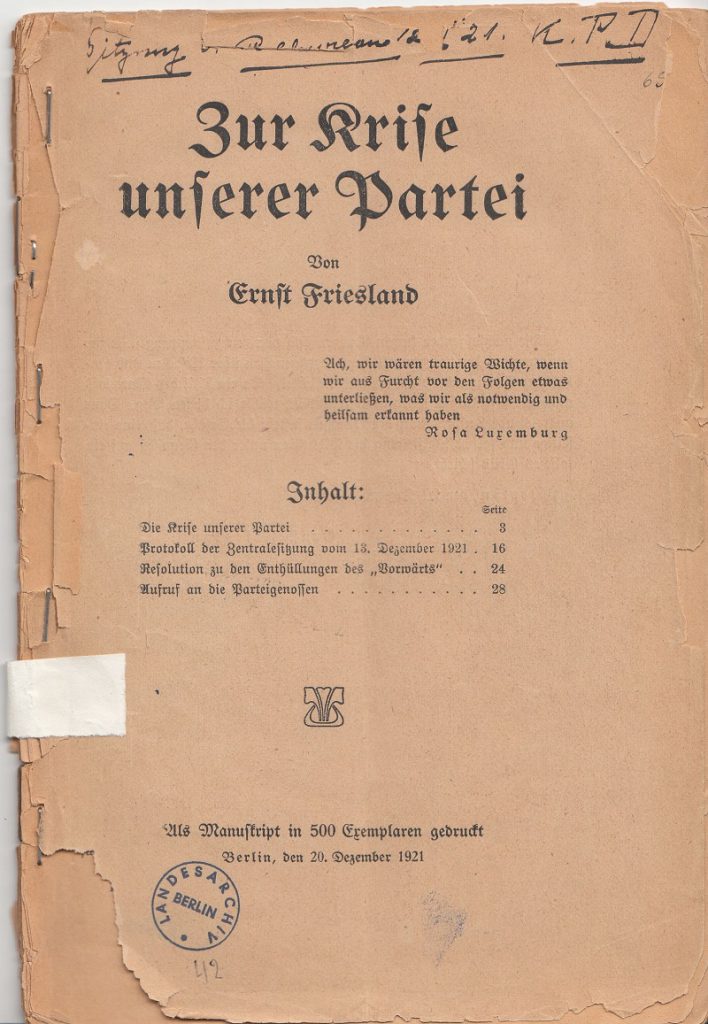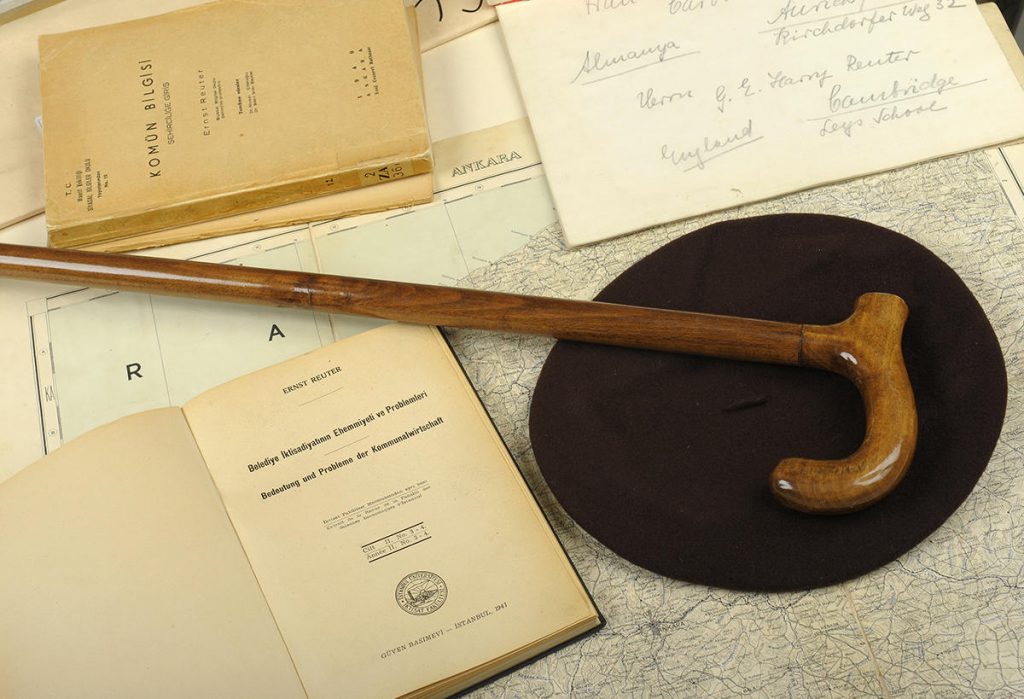Projects
Here you will find a selection of our current and concluded projects.
A means of transport changes the city. Berlin and the beginnings of the U-Bahn
The U-Bahn is a defining feature of Berlin’s transport network and urban landscape. Transporting 572 million passengers each year (2021), it is an essential component of local public transport, without which everyday life in the capital could hardly be imagined. It is easy to forget, however, that much of what we use each day has a long history that dates back to the late nineteenth century.
Walther Schreiber
In 1953, after Ernst Reuter’s unexpected death and the break-up of the governing coalition, CDU politician Walther Schreiber took up the office of Berlin’s Governing Mayor as Reuter’s successor. Today, little is known about Schreiber, whose political career began in the Weimar Republic. As part of the research project, an extensive collection of material was compiled to document the varied activities of this deserving democrat. A publication is planned for 2023.
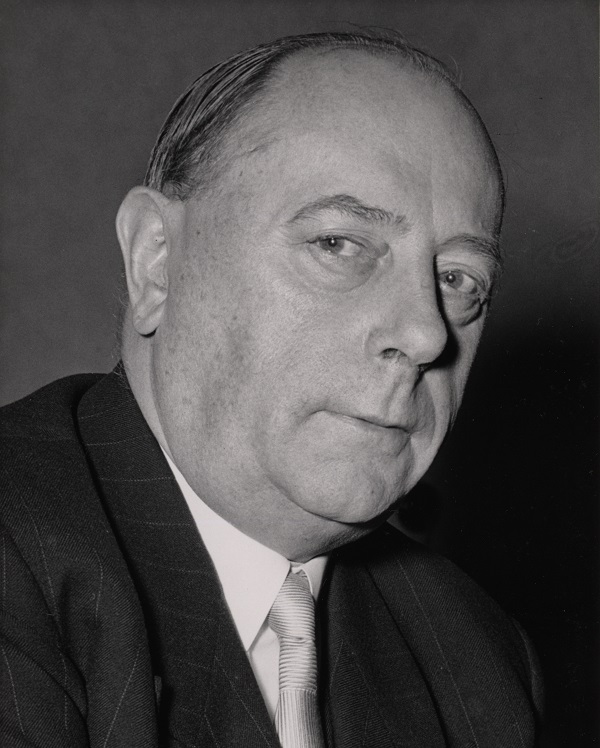
Image credits »© Landesarchiv Berlin, F Rep. 290, Nr. 0028738 (Gert Schütz).
Ernst Reuter in the berlinHistory app
The berlinHistory app allows users to immerse themselves in the past at a wide range of locations in the German capital. Using a smartphone, Berlin’s history can be conveniently accessed – anywhere and at any time. The “Ernst Reuter Archives Foundation” thematic layer sheds light on Ernst Reuter’s life in Berlin through guided audio tours and historical images.
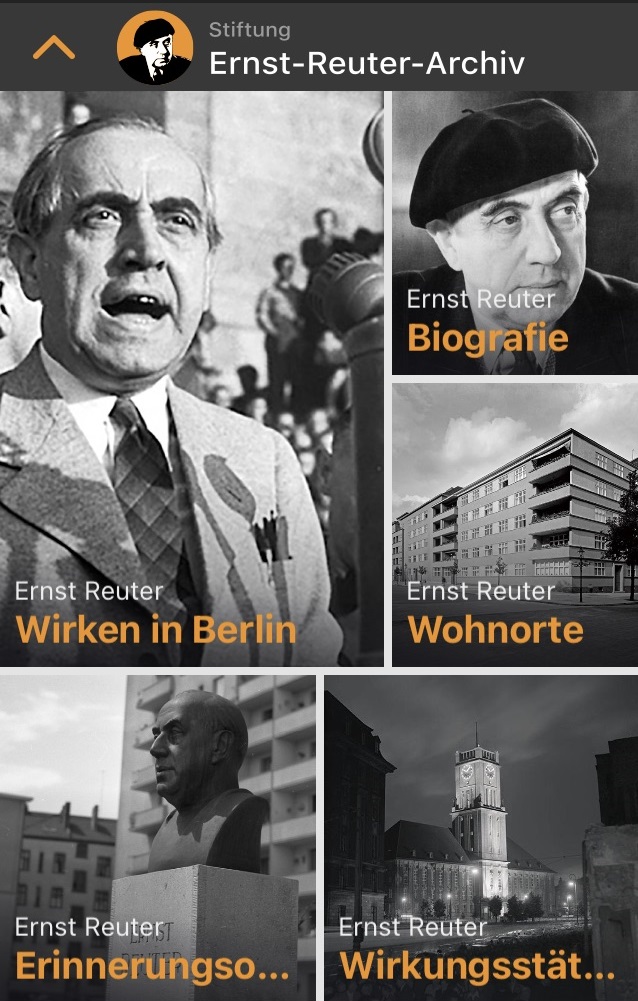
Richard von Weizsäcker and German politics
As Governing Mayor (1981–1984), Richard von Weizsäcker became something of a role model among Berliners. He later earned great esteem both at home and abroad as head of state of the Federal Republic of Germany (1984–1994), and he is still considered the most popular Federal President in history. In March 2021, the Ernst Reuter Archives Foundation organized an event together with the Konrad Adenauer Foundation to mark Richard von Weizsäcker’s 100th birthday. A subsequent edited volume will explore the various aspects of Weizsäcker’s character and his political work from a historical perspective.
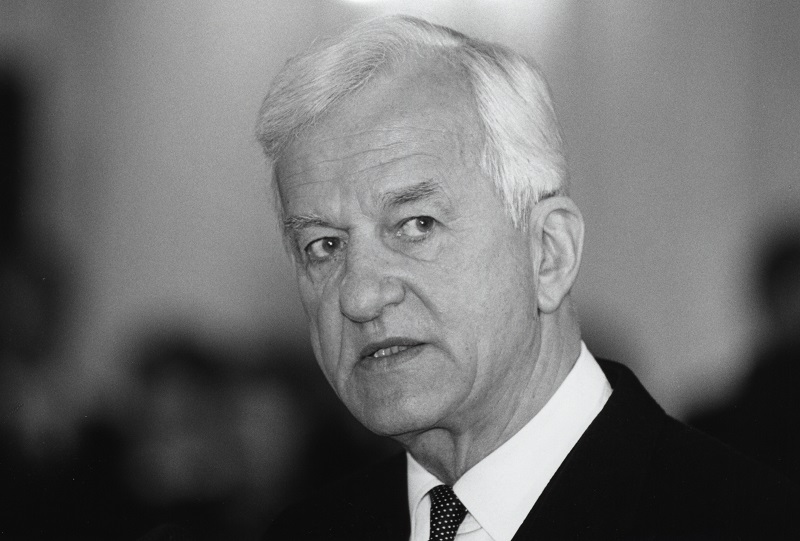
Image credits »© Landesarchiv Berlin, F Rep. 290, Nr. 0356958 (Barbara Esch-Marowski).
“Where the shoe pinches” – Ernst Reuter on air
On 18 November 1951, the first episode of the series “Wo uns der Schuh drückt” (“Where the shoe pinches”) was broadcast on RIAS (Radio in the American Sector). The aim of the 14-day radio series, as Governing Mayor Ernst Reuter explained in the first episode, was “to discuss the everyday hardships and worries that concern us all […], and to explore what we can do, what we can’t do, and how I judge the situation based on my understanding of the circumstances”. The episodes offer a fascinating insight into both Reuter’s political assessments and the mood of Berlin’s population, to whose letters the Mayor responded.
Local government and transatlantic encounters
In the second half of the nineteenth century, the major cities of Europe and North America experienced rapid population growth that was unprecedented in history. This growth threw up many challenges in terms of municipal administration, which were intensively discussed across borders by experts in the field during international conferences, exhibitions, and study trips, and in journalism. The research project retraces these diverse transatlantic exchanges of expertise.
Hanna Reuter. A biographical approach
As well as holding the legacy of Ernst Reuter, the Landesarchiv also holds that of his second wife, Hanna Reuter (1899–1974). After their marriage in 1927, Hanna Reuter remained firmly at her husband’s side; following his premature death, she acted as the trustee and guardian of his intellectual and political legacy. The historian Merle Büter systematically researched Hanna Reuter’s biography for the first time between 2015 and 2017, concluding that “[Hanna] put her life entirely at the service of her husband”.
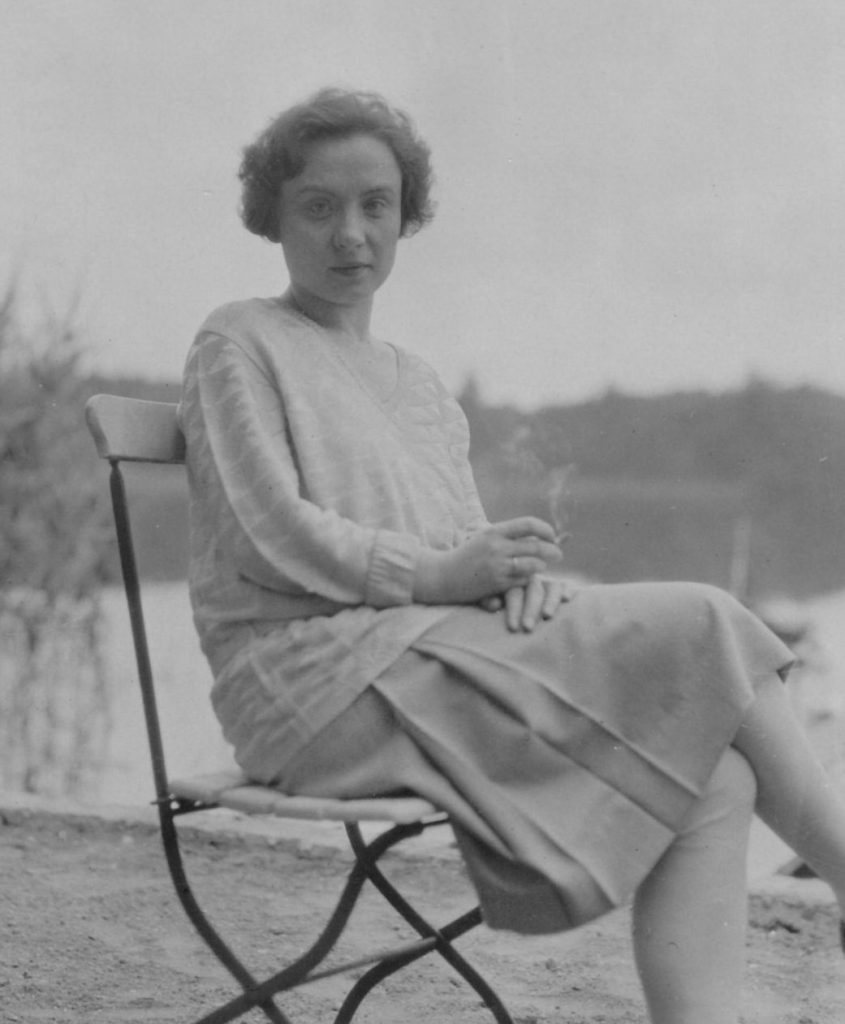
Image credits »© Landesarchiv Berlin, E Rep. 200-21 (Fotos), Nr. 109.
Ernst Reuter the communist
Many people are surprised to learn that Ernst Reuter, as a renowned politician within the SPD (Sozialdemokratische Partei Deutschlands, Social Democratic Party of Germany), had a communist past. Having already encountered the ideas of Bolshevism during the First World War, Reuter was a functionary within the Communist Party of Germany for many years. Existing research has certainly touched upon this episode of Reuter’s life, but source materials have – until now – been limited in availability. As part of the project, Russian and German archives were searched for materials that document this period in his biography, thus making an important contribution to the availability of primary sources for research.
Ernst Reuter and Turkish Urbanism
Ernst Reuter spent eleven years of his life in Turkey. For eight of these years he worked as a professor of municipal policy at the then University of Political Sciences in Ankara. During this time, Reuter trained an entire generation of Turkish urban planners while also writing numerous articles, giving lectures, and writing books – all in Turkish. As part of the project “Ernst Reuter and Turkish Urbanism”, around 80 accounts of Reuter’s impact from 1938 to 1946 were collected and made available for historical research.
↑Image credits Headerimage© Thomas Platow, Landesarchiv Berlin.

